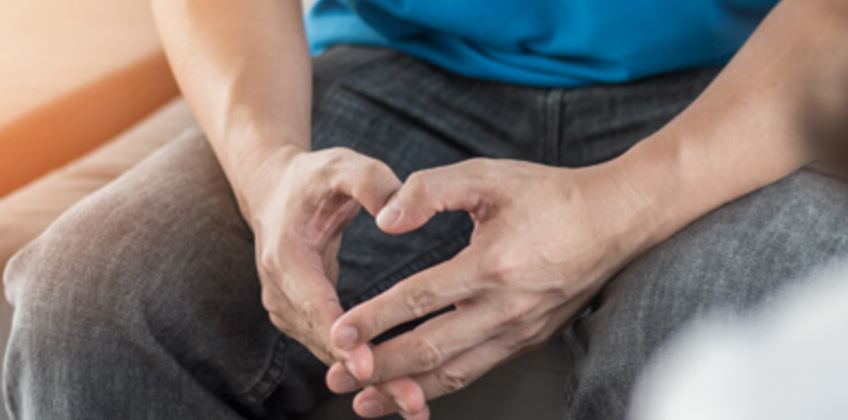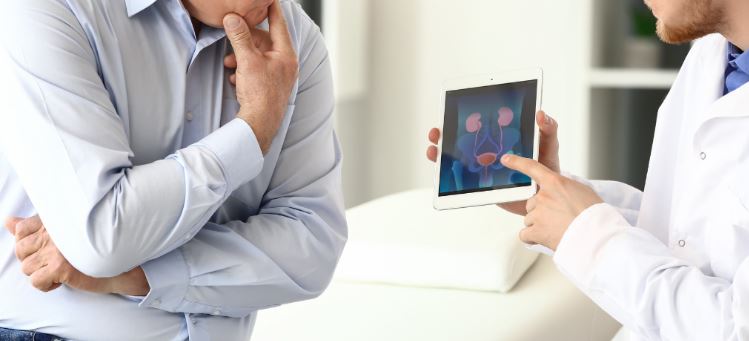Homeopathy for Prostate Treatment: A Natural Alternative to Surgery
Benign Prostate Hyperplasia (BPH) is a common condition among men as they age, characterized by the non-cancerous enlargement of the prostate gland. This enlargement can lead to uncomfortable urinary symptoms, such as difficulty in starting urination, frequent nighttime urination, and a weak urine stream. While surgery is a conventional treatment option, homeopathy offers a natural and effective alternative. Homeopathic medicines not only manage the symptoms of BPH but also work to halt the progression of the condition, providing relief without the need for invasive procedures.
Benign Prostate Hyperplasia (BPH) is the medical term for the non-cancerous enlargement of the prostate gland. This condition causes the prostate to put pressure on the urethra, obstructing the flow of urine and resulting in various urinary complications. Also Read: Homeopathy Treatment For Erectile Dysfunction.
Homeopathy for Prostate Treatment: Homeopathic Treatment for BPH
Homeopathic medicines offer a promising alternative to conventional treatments for prostate enlargement, potentially saving individuals from surgical intervention. These remedies are designed to manage the symptoms of BPH and prevent further progression of the condition.
The Prostate Gland: Function and Anatomy
The prostate gland is about the size of a walnut and encircles the first part of the urethra just below the urinary bladder in males. It secretes prostatic fluid, which constitutes approximately 30 percent of semen. Additionally, the muscles of the prostate gland help expel semen during ejaculation. The normal weight of the prostate gland ranges from 8-15 grams, and its typical size in an adult male is between 15cc to 30cc (cubic centimeters). When the prostate gland enlarges beyond 30cc, it usually indicates benign prostate hyperplasia (BPH).

Top 5 Homeopathic Medicines for Benign Prostate Hyperplasia (BPH)
1. Sabal Serrulata – Top-grade Medicine for BPH
Sabal Serrulata, derived from saw palmetto berries, is a highly effective remedy for BPH. Among Top Medicine in Homeopathy for Prostate. It addresses frequent urination, particularly at night, difficulty in initiating urination, interrupted urination, dribbling urine, and burning sensations during urination. Additionally, it helps with erectile dysfunction related to an enlarged prostate. Among Top Medicine in Homeopathy for Prostate.
When and How to Use Sabal Serrulata:
Start using Sabal Serrulata upon BPH diagnosis to relieve symptoms and prevent progression. The mother tincture (Q) form is most effective: take 8-10 drops in half a cup of water two to three times daily.
2. Conium Maculatum – For Interrupted Urine Flow in BPH
Conium Maculatum is ideal for managing interrupted urine flow due to an enlarged prostate. Symptoms include urine starting and stopping multiple times during voiding, burning or pricking pain in the urethra, and dribbling of urine. Among Best Medicine in Homeopathy for Prostate, with interrupted urine flow.
When and How to Use Conium Maculatum:
Use Conium Maculatum 30C potency twice daily to address interrupted urine flow.
3. Lycopodium Clavatum – For Frequent Urination at Night
Lycopodium Clavatum is effective for managing frequent nighttime urination associated with BPH. It also addresses delayed urination onset and urine straining, along with erectile dysfunction linked to prostate issues.
When and How to Use Lycopodium Clavatum:
Begin with Lycopodium Clavatum 30C potency, taking it one or two times daily to manage nocturnal urination and associated erectile dysfunction.
4. Baryta Carb – To Manage Sudden Urge to Urinate
Baryta Carb effectively treats the sudden urge to urinate with an inability to retain urine, often accompanied by a burning sensation and dribbling after urination. Increased frequency of urination is also common.
When and How to Use Baryta Carb:
Use Baryta Carb 30C potency twice daily to manage urgent urination in BPH cases.
5. Chimaphila Umbellata – For Difficulty in Starting Urination
Chimaphila Umbellata helps those who strain excessively to start urinating. In severe cases, urination may be forcefully initiated by bending forward. Symptoms include scanty and foul-smelling urine, along with a burning sensation during urination.
When and How to Use Chimaphila Umbellata:
Chimaphila Umbellata in mother tincture form is most effective: take 5-7 drops in half a cup of water twice daily to manage excessive straining during urination.
Symptoms of Enlarged Prostate
- Frequent urge to urinate, especially at night
- Urgent need to urinate
- Straining to begin urination
- Weak urine stream
- Dribbling after urination
- Interrupted urination
- Sensation of incomplete bladder emptying
- Pain and burning during urination in case of a urinary tract infection (UTI)
Causes of Prostate Hyperplasia
The exact cause of BPH is unknown, but several factors contribute:
- Age-Related: Men aged 50-60 have over a 50% chance of prostate enlargement.
- Hormonal Imbalance: As men age, the active testosterone in their blood declines, leaving higher estrogen levels that may promote prostate cell growth. Increased dihydrotestosterone (DHT) levels can also contribute to prostate cell growth.
- Family History: Men with a family history of BPH are at higher risk.
- Obesity: Increases the risk of BPH.
- Certain Medical Conditions: Diabetes and heart diseases can increase the risk.
Complications of BPH
While not all cases result in complications, potential issues include:
- Urine Retention: Acute urinary retention is a medical emergency requiring catheterization or surgery.
- UTI: Incomplete bladder emptying increases the risk of UTIs.
- Bladder Stones
- Bladder or Kidney Damage
Frequently Asked Questions
1. Can frequent urination at night indicate BPH?
Yes, frequent nighttime urination can be a symptom of BPH. However, other conditions like diabetes, UTIs, and overactive bladder can also cause this symptom, so a detailed evaluation is necessary.
2. Does a weak urinary stream mean prostate enlargement?
Not necessarily. A weak stream can indicate BPH or urinary stricture, so proper evaluation and investigation are essential.
3. Can BPH cause sexual dysfunction?
Yes, BPH can lead to erectile dysfunction and reduced sex drive.
4. What tests are needed for suspected BPH?
Tests include an ultrasound of the prostate, cystoscopy, post-residual volume test, urinary flow test, urine test to rule out infection, and PSA test. Elevated PSA levels may require a biopsy to rule out cancer.
5. What is PSA and its significance?
PSA (Prostate-Specific Antigen) is produced by prostate cells and used as a screening test for prostate cancer. Normal PSA levels are below 4.0 ng/ml. Elevated levels may indicate cancer, warranting a biopsy.
6. Can natural medicines help avoid surgery for BPH?
Homeopathy for Prostate effectively treat BPH, especially mild to moderate cases, potentially avoiding the need for surgery.
7. What does post-voidal residual urine with an enlarged prostate indicate?
Residual urine indicates incomplete bladder emptying due to obstructed urinary outflow, common in BPH. Acute urinary retention requires immediate medical attention.
8. What are the grades of BPH?
BPH has three grades:
- Grade 1: No troubling symptoms or significant obstruction.
- Grade 2: Symptoms appear but without significant obstruction.
- Grade 3: Significant obstruction with post-residual urine volume over 100ml.
9. Is prostatitis different from BPH?
Yes, prostatitis is the inflammation of the prostate gland, often due to bacterial infection, while BPH is the non-cancerous enlargement of the prostate, mainly age-related. Also Read: HOMEOPATHY FOR URETHRAL STRICTURE.
10. Why are people with BPH prone to UTIs?
Incomplete bladder emptying due to BPH allows bacteria to grow, leading to UTIs.
11. What lifestyle changes can help manage BPH?
- Reduce daily fluid intake.
- Avoid alcohol and caffeine.
- Limit evening fluid intake.
- Urinate when the urge arises.
- Exercise regularly.
- Strengthen pelvic floor muscles with exercises.



